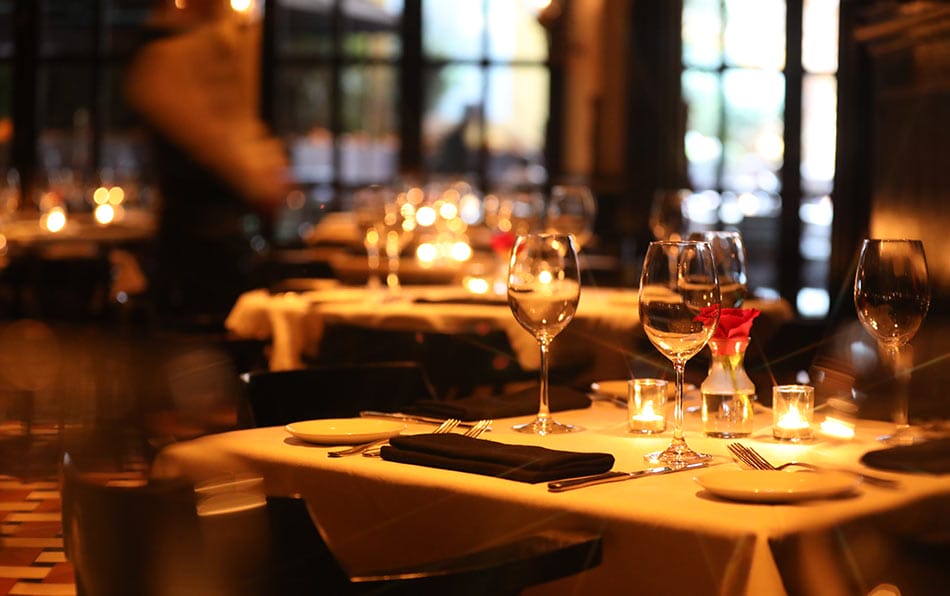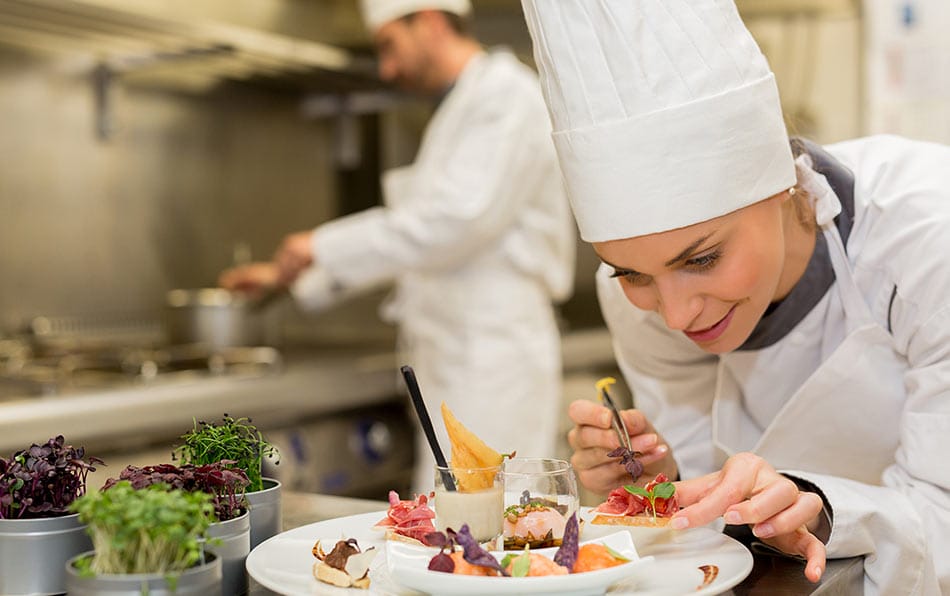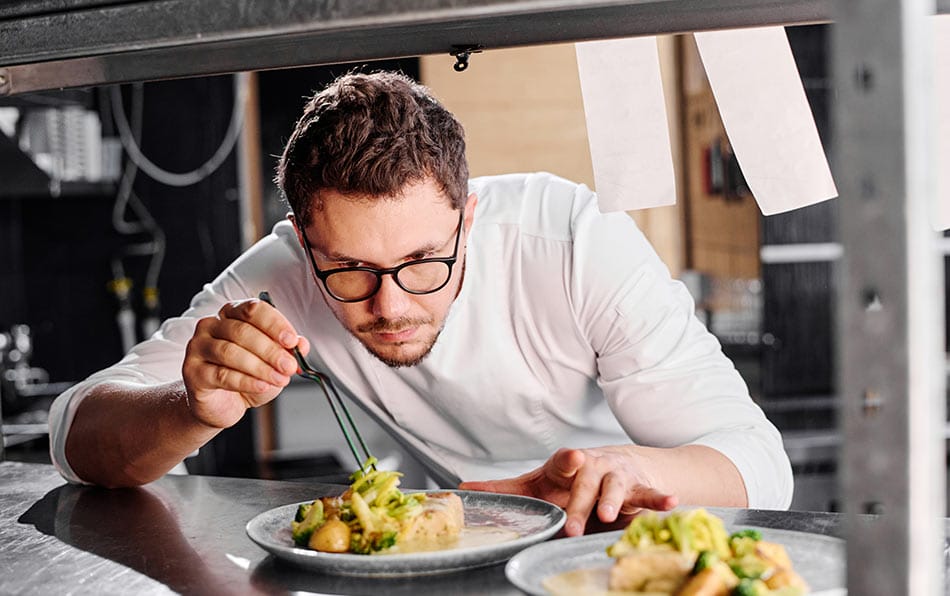Achieving a Michelin Star is a dream for many restaurateurs, representing the pinnacle of culinary excellence and prestige.
Whether you’re a Chef or a Restaurant Manager, securing this coveted award can elevate your establishment to international fame.
In this guide, we’ll explore what it takes to earn a Michelin Star, from understanding the rating system to meeting the rigorous criteria set by Michelin inspectors.
How To Get a Michelin Star
If you’re running a restaurant or a kitchen, earning a Michelin star might be your ultimate goal. If this is the case, there are things you can do to increase your chances. Let’s look at the most important steps to take.
Hire the right staff
It’s impossible to meet the Michelin Guide criteria without the right Head Chef in the kitchen. After all, it’s their cuisine that determines whether or not the establishment receives stars.
With that said, it’s up to the Restaurant Owner or Restaurant Manager to find a Head Chef who’s passionate about their work and always strives for excellence. This may be a kitchen veteran with a proven record or an aspiring Chef chasing their dream. Ultimately, it’s all about how ready they are to help the establishment achieve excellence.
While service doesn’t play a huge part in the evaluation, you don’t really want Michelin inspectors to be served a cold dish. That’s why it’s important to ensure employees in other roles, such as Waiters/Waitresses and Servers, are up to the task.

Improve your culinary expertise
If cooking is your passion and you want to become a Michelin Chef, keep in mind that it takes a lot of culinary expertise to get there. Almost anyone can put a few ingredients together and serve them to customers.
The best Head Chefs have mastered all cooking techniques and can add something special to just about any dish. Only the best of them get to adorn their careers with Michelin stars.
This doesn’t necessarily mean you have to receive formal culinary education. You can become a Chef without culinary school and build a name for yourself in the restaurant industry. If you prove you belong among the very best, you’ll be one step closer to receiving your stars.
However, this includes starting in an entry-level position such as Cook, improving your cooking and knife skills and moving up through the ranks.
Connect to your cuisine
In order for a Head Chef and their restaurant to receive Michelin stars, both their dishes and the menu have to stand out. Although not impossible, it’s difficult to imagine a restaurant receiving the award for serving only classic meals.
Inspectors prefer to award stars to Chefs who are true artists in their field. Therefore, it’s up to you to embrace your creativity and come up with new dishes or add a touch of your own to traditional dishes.
Deliver quality food consistently
Remember, you won’t know when the Michelin inspectors show up to try your cuisine. There’s no opportunity to create something special and try to impress them. Instead, it’s all about delivering exceptional food consistently.
You may not even be there when the inspectors arrive. A Head Chef’s work is no longer restricted to the kitchen alone. While in the role, you may see yourself traveling for various events and collaborations. It’s important to train your Sous Chef and the rest of the staff to deliver consistently good meals even in your absence.
Can You Lose a Michelin Star?
Earning Michelin stars isn’t a lifetime achievement, and a restaurant and its Head Chef can lose them if their food and service quality decline.
Inspectors revisit venues regularly to determine whether they’re still worthy of their Michelin stars. If they notice your restaurant is slipping in any way, there’s a risk of losing your star.
A Michelin inspector said they understand that awarding and taking away stars can make or break somebody’s business. That’s why they go as many times as they have to to ensure consistency.
Even the great Gordon Ramsay lost Michelin stars at one point. He said that it’s a very emotional thing for any Chef.
It’s also important to mention that the restaurant doesn’t lose its stars when the Head Chef leaves. Stars are given to the restaurant and are retained even when a new Head Chef is hired. However, inspectors continue to visit the restaurant and may eventually remove its stars if the place no longer fulfills Michelin star requirements.
Becoming a Michelin Chef
If your dream is to become a Michelin Chef, it takes dedication, passion, and a commitment to culinary excellence. Here’s how to get started:
- Build Experience: Start with entry-level roles like Cook and work your way up. Develop your skills and gain exposure to different cuisines.
- Master Cooking Techniques: Learn and perfect the art of balancing flavors, creating visually appealing dishes, and using innovative methods.
- Stay Creative: Michelin celebrates creativity. Embrace your artistic side and experiment with unique ingredients and flavors.
- Pursue Consistency: Your dishes should be excellent every time, no matter the circumstances.

Michelin Star Criteria: How Restaurants Are Evaluated
Unlike many awards, restaurants cannot apply for a Michelin Star. Instead, anonymous Michelin inspectors evaluate them using five core criteria:
Using quality products
At its core, an exceptional dish is based on two things – quality ingredients and outstanding cooking. In terms of ingredients, Michelin inspectors look for tasty, locally-grown ingredients that reflect the restaurant’s location and overall theme.
It’s a myth that Michelin only ranks restaurants that use expensive ingredients. Instead, it’s all about making simple dishes using local ingredients. A well-prepared carrot from a local farm can leave the same impression as caviar or saffron.
Mastery of flavor and cooking techniques
To put ingredients together and deliver a top-notch meal takes a lot of culinary expertise and cooking skill. The best Chefs can highlight the innate characteristics of each product and balance their flavors.
Michelin inspectors rate how well Chefs do this while also delivering dishes that look good. Lastly, pacing plays a significant role as nobody wants to wait an hour between courses.

Value for money
People often assume only the most upscale and fine-dining restaurants receive Michelin stars. However, this isn’t the case – a restaurant of any type can get them. Inspectors rate what diners get for their money and whether the restaurant delivers on its promises.
Personality of the Chef
Head Chefs don’t just prepare food – they’re viewed as culinary artists and their connection to the cuisine plays a big part in receiving stars. Although it’s a more subjective criterion, inspectors often look at how personalized the menu is and how it compares to other establishments in the area. A long list of classic dishes doesn’t really help a restaurant stand out.
To satisfy this criteria, Chefs often experiment with different ingredients and different flavors. It’s all about letting them do what they do best and expressing themselves through their cuisine.
Consistency of the food
Michelin visits all restaurants on its radar at least two or three times, with different inspectors each time, before awarding them with a star. This is done to ensure the quality of the food and service is always the same and that a bad day doesn’t become a deal breaker.
Conclusion: What Are Michelin Stars and Why Do They Matter?
Michelin Stars are the ultimate hallmark of quality in the culinary world, awarded by the Michelin Guide, a renowned publication created by the Michelin tire company over a century ago. Initially designed to encourage motorists to explore and dine at various locations, the guide became famous for recognizing the finest hotels and restaurants.
Michelin stars are awarded in three levels:
- One Star: A very good restaurant worth a stop.
- Two Stars: Excellent cooking, worth a detour.
- Three Stars: Exceptional cuisine, worth a special journey.
In addition to stars, the guide also recognizes establishments with awards like the Bib Gourmand (for exceptional food at moderate prices) and the Michelin Green Star (for sustainable gastronomy). For restaurants, earning a Michelin Star signifies prestige, higher customer demand, and a boost in reputation.




